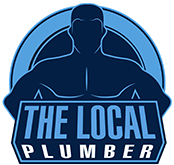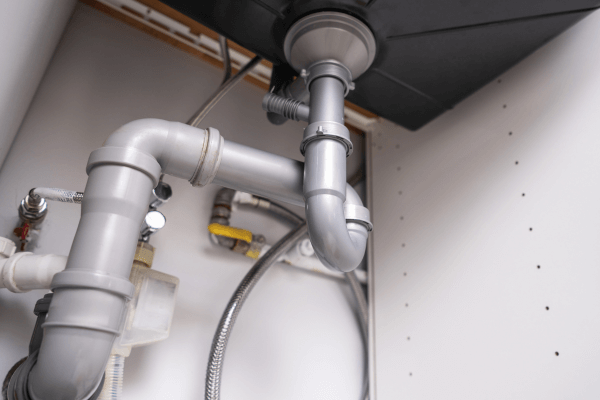Blocked drains are a common nuisance for all homeowners, leading to inconvenience, potential property damage, and the need for professional intervention. But what really goes on inside your pipes that leads to these blockages? Unraveling the science behind blocked drains not only provides fascinating insights but also empowers us with knowledge to prevent future issues. Here, at The Local Plumber our team has delved deep into the mechanics of plumbing systems to shed light on the causes, effects, and solutions for blocked drains within Melbourne.
The Dynamics of Your Plumbing System
At its core, your home’s plumbing system is a complex network of pipes, designed to carry fresh water in and waste water out. This system operates on principles of physics, such as gravity, pressure, and the flow of water, to function efficiently. However, when the flow is interrupted or obstructed, blockages occur, leading to the dreaded scenario of a blocked drain. Please refer to the Victorian Building Authority Drainage registration and licensing for more information on the legal specifics of your plumbing system.
The Causes of Blockages
Several factors contribute to blocked drains, each with its own scientific explanation:
- Grease and Fat Buildup: When grease, fats, and oils are washed down the sink, they may initially move smoothly due to their liquid state. However, as they cool and come into contact with cold pipes, they solidify, sticking to the inner walls of the pipes and gradually accumulating until they block the flow of water.
- Hair and Soap Residue: In showers and bathroom sinks, hair binds with soap residue, forming a sticky mass. This combination adheres to the pipe walls and, over time, can gather other debris, effectively clogging the drain.
- Foreign Objects: Objects that shouldn’t be flushed down the toilet or dropped into drains can cause immediate blockages. This includes everything from sanitary products to children’s toys.
- Mineral Buildup: In areas with hard water, minerals dissolved in the water can precipitate out and accumulate on the inside of pipes, reducing the diameter through which water can flow and eventually leading to blockages.
Our recent article on the common causes and signs of blocked drains covers more information if you wish to learn more.
The Physics of Water Flow
Understanding the science of water flow is crucial in comprehending how blocked drains occur. Water moves through pipes under pressure, allowing it to travel upwards and around curves. When a blockage forms, it disrupts this flow, leading to a buildup of water pressure behind the blockage. This can result in slow drainage, as water struggles to pass through, or in severe cases, a complete halt in drainage.
Diagnosing Blocked Drains
Professional plumbers use various scientific methods to diagnose and locate blockages within the plumbing system:
- CCTV Drain Inspections: By sending a camera down the pipes, plumbers can visually inspect the interior of the plumbing system, identifying blockages and their causes without the need for invasive procedures.
- Hydrostatic Pressure Tests: These tests involve introducing water into the pipes at a known pressure and volume to detect leaks, blockages, or weaknesses in the plumbing system.
Eco-Friendly Solutions to Unblock Drains
Armed with the knowledge of what causes blocked drains and how water flows through pipes, The Local Plumber advocates for eco-friendly methods to resolve these issues:
- Baking Soda and Vinegar: This natural chemical reaction produces carbon dioxide, which can help dislodge blockages without harming the pipes or the environment.
- Manual Removal: For blockages caused by hair or foreign objects, physically removing the obstruction can be the most direct and environmentally friendly solution. A great and cost effective method to start is using a plunger to create pressure changes in the pipe, which will help dislodge the blockage.
- Enzymatic Cleaners: These cleaners use bacteria or enzymes to eat away at organic matter blocking the pipes, offering a safe and natural way to clear blockages.
- High-Pressure Water Jetting: Deploy hydro-jetting equipment to send high-pressure water streams through the pipes, effectively cutting through and removing grease, debris, and roots.
- Drain Snake: Utilize a plumber’s snake or drain auger to physically remove or break apart blockages within the pipes.
- Pipe Repair and Replacement: In cases where blockages are caused by damaged or collapsed pipes, determine the best course of action for repair or replacement.
For the most extreme blocked drain issues, root excavation and cutting may be required to remove tree roots that have infiltrated and blocked sewer lines.
Preventive Measures
Prevention is always better than cure, especially when it comes to plumbing. Here are some scientifically backed preventive measures to keep your drains clear:
- Regular Cleaning: Keeping drains clean and free of debris can prevent the accumulation of substances that lead to blockages.
- Avoiding Chemical Cleaners: Chemical cleaners can corrode pipes over time, leading to leaks and breaks that exacerbate blockage issues. Opting for natural cleaners or professional cleaning services can avoid these problems.
- Proper Disposal: Educating household members on what should and should not go down drains can significantly reduce the risk of blockages.
Melbourne’s Leading Blocked Drain Plumbers
In conclusion, the science behind blocked drains reveals a complex interplay of physical and chemical processes within our plumbing systems. By understanding these processes, homeowners can take proactive steps to prevent blockages and address them in eco-friendly ways when they occur. For those times when a blockage is too tough to handle alone, our emergency plumbers are equipped with the knowledge, tools, and eco-conscious methods to get your drains flowing smoothly again.

